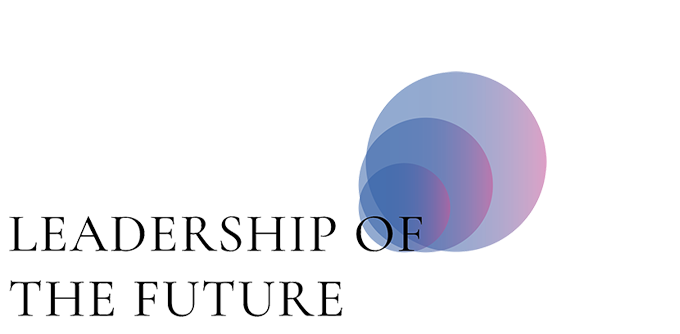
You may become irrelevant as a leader without noticing
Since you are reading this article in Mandag Morgen you are likely a skilled, competent and successful manager. Yet I dare make the claim that you are most likely on your way to becoming irrelevant.
We are all busy dealing with the short-term management challenges – the ones that constantly require our attention. A big threat to our relevance as leaders in the future is that we are too busy to realize and understand the depth of the significant change in what is required from leadership in the digital era.
Let me begin with a personal anecdote about how natural it feels to be on your way to becoming irrelevant.
As SVP in an engineering consultancy company I and my colleagues would decide on the yearly strategy and of course factor in digitalization and future technological advancements. Both we and the board of directors were satisfied and felt that we had made a good job.
I got wiser. In hindsight there were three challenges that we were ignorant of:
- Our imagination was not at all trained or strong enough to imagine what the technological possibilities might mean for our internal production, for the behaviour of our customers, changes in business models or changes in the needs and structures of society.
- We only understood these technological possibilities at a very superficial level – anyone can say the words digitalization, AI, robots and so on but do you really understand the technology well enough to know where it can or cannot be used? How are you supposed to think about data ethical, environmental or societal consequences?
- And since we had not realized what kind of future we were facing, we could not contemplate what future obstacles to success in terms of leadership and organisation we had in our current company.
I did not realize these things until I, driven by a vision of understanding how to lead in the digital age, quit my job as a senior manager and started looking for anwers. Three questions in particular were on my mind: What are the biggest challenges the world is facing? What does the future look like? And last but not least: How does this affect the way in which we lead? Among other things I went to Silicon Valley to study technology and start-ups as well as brain research and the sustainable development goals and their possible solutions.
This, along with a big aha moment from our work on the business strategy a year and a half earlier, gave me deep insight into what we will have to do differently from now on. We were convinced that we knew what we were doing. In reality, we were blissfully ignorant and enjoying a false sense of reassurance. The feeling of becoming irrelevant in the medium to long-term was non-existent.
Powerful forces are against you
If you are now thinking that fortunately you are completely on top of your imagination, technology and changes in the market concerning your business, then congratulations – for now. Because there is still a significant risk that you are working hard on your irrelevance when it comes to the leadership approach.
The strongest and most invisible powers that are preventing you from adapting reside in your brain. We still have the reaction patterns of our lizard brain that ensure our survival, but these are not always beneficial in the modern era. Let me give you three examples of biases that are working against us.
Our lizard brains are programmed to learn from past successes and repeat them. This is why your success up until now may be the biggest obstacle to future success because your brain sees it as proof that “you know the formula” – even though the era we live in requires a different approach.
Adding to this the bias of aversion to risk taking. “A bird in the hand is worth two in the bush”. Behavioural scientists Daniel Kahneman and Amos Tversky have shown that we do not feel comfortable taking chances with a new solution until we perceive it as twice as good as the old one – but very few chances on new technology or business models are guaranteed in advance to be twice as good.
Finally, the socializing bias. When we are uncertain of something, we look to those around us. Are the others doing something? If not, then we won’t. Or, when everyone else is digitalising, then we will too…
The problem is that the world has changed so much that there are new formulas and criteria for success that have to be implemented. But our lizard brain and its instincts are preventing us from doing it. Doing what will be successful in the future will often feel intuitively wrong. So, remaining relevant as a leader requires both awareness and courage.
Never before in all of history have we seen change happen so fast and in so many areas at the same time. For businesses these changes impact everything: Technologies, business models, costumer needs, increased global competition, demands of contributing to the solving the sustainable development goals and so on.
Being human is our strongest asset
The speed and extent of change means that we can never again have the sense of control and as detailed a decision foundation as we are used to. Achieving this would be too slow. We cannot strategize and plan in the same way as we did before because it may actually limit the fast development of a company. Everything is becoming more complex. So, what do we do?
We can only handle this new complexity by rediscovering and activating all of our human capacity. Maybe you are thinking that we cannot prioritize humans over profit out of consideration for the shareholders but in reality, it is the other way around. The company will not make it in the future without making humans the top priority – so in the end, that will make the better business.
Based on 20+ years of management experience in Novo Nordisk and consulting engineering companies along with research on the subject I have written the book ‘Leadership of the future – How to lead in a world that looks nothing like the past’. In this, I explain how I think we can lead with a simplified structure.
The core of the book is seven principles intended to create a fundamental stability for leaders and employees in a time of rapid change, so that we can accommodate the complexity and uncertainty while simultaneously creating growth. The following is a condensed version of the seven principles:
- What is the most stable goal that a business can have in an uncertain future? One of solving real problems for humans. Lead the company towards a meaningful purpose which does not change with changing products and which evokes loyalty in customers and employees.
- Use the entire human brain – Use both blue and read approaches – Blue being focused on fast action, short term visible goals, numbers and KPIs and a self-assure decision making. The red ones being focus on processes, co-creation, co-operation, long term goals, involving diverse opinions before taking decision.
Fast development processes are dependent on having more red approaches and diverse teams. In the book a new language is introduced through which good leadership and the gender debate are decoupled, so that we can break the stalemate and achieve greater diversity.
- Reduce fear in the organisations in order to liberate humans to the point that they dare be themselves, dare take responsibility, dare give input that may go against the grain but contributes to robust decisions.
- Lead to increased energy in humans and organisations. Energy – not time consumption – is the ultimate indicator of human performance. The previous three principles increase energy which is also increased by more all-inclusive responsibilities, a focus on personal motivation and strengths and through a culture of learning where mistakes are used constructively.
- Redefine success – with goals that emotionally appeal to humans and increase involvement and pace.
- Create agile processes that support quick results. Many of the business processes that companies use today are a hindrance to increasing speed of development and production. To do that, we need more iterative and agile processes, more delegation of responsibility and delegation of most decisions to those who are working with the tasks.
- Build courage to take risks, try new things and making fast decisions. Courage is not something you just have; it can be developed. The previous six principles help clarify what is important to fight for, and knowing what is really important helps induce a fundamental courage.
It takes courage to change leadership approaches, but it is not impossible to do so. The book is a recipe for how. In broad terms the daily role of managers changes from control to direction and development.
Because of the instincts of the lizard brain this change will be anxiety provoking for all leaders who currently lead with control. But you have a choice between changing your leadership approach or becoming irrelevant as a leader.
Changing to this new approach brings with it a reward. You will become more energetic, agile and courageous – and a more complete human being. And the leader of the future is exactly that.
This opinion article was first printed in the Danish Business Magazine “Mandag Morgen” August 2019



